What They Do Best | Funkytown Brewery Is Crafting Dreams
Funkytown Brewery founders Rich Bloomfield, Zack Day and Greg Williams met in 4th grade in Chicago and grew up together. They went to historically Black Grambling State University in Louisiana together, and returned to the Windy City together to begin their lives and careers. While attending parties, backyard barbecues, baby showers and other get-togethers in their twenties, they realized something else together: they were the only Black people bringing craft beer to these events.
“We noticed at all types of functions where there were women, Black people and Hispanic people, we were the only guys bringing it around,” says Bloomfield, Funkytown’s CEO. Friends would ask them questions about the beers they’d brought, and it gave the trio opportunities to explain their interest in craft to an audience that historically hadn’t been included in that scene.
“We explained that stuff and were able to get this feedback and find beers that were palatable to these people,” Bloomfield recalls. “So it was just like, this is natural to us. If we start brewing beer, understanding these underserved communities’ palates, we can reach a whole different market and introduce a new community to craft beer.”
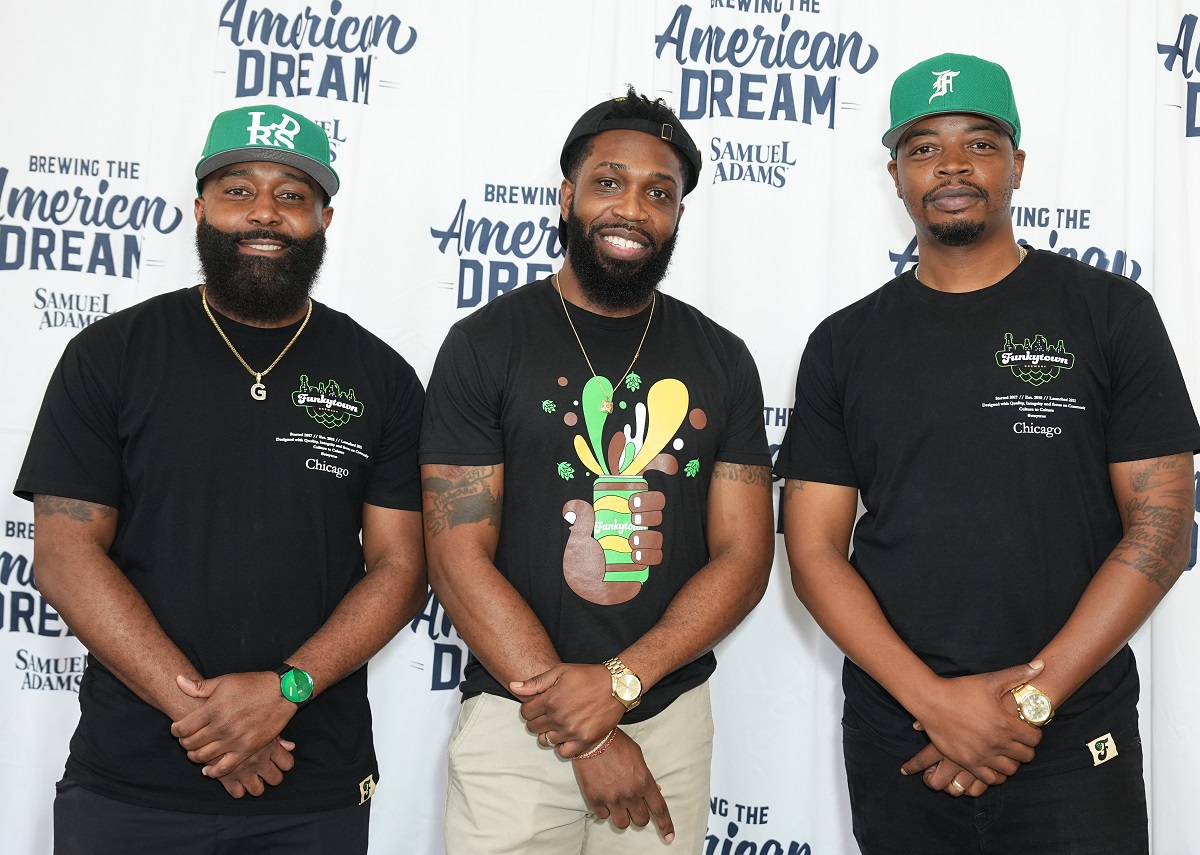
After years of enjoying craft beer as consumers, the three friends decided to start homebrewing together. “Homebrewer Turns Pro” might feel like a tired trope at this point, but in the case of the guys from Funkytown, it wasn’t an accidental or ego-driven development. They started brewing beer in 2017 specifically with the plan to start a brewery that would meet Black and other minority communities around them on their own terms.
In 2021, Funkytown officially opened inside Pilot Project, a brewery incubator in Chicago’s Logan Square neighborhood, as a realization of their long-time goal: to reach their community, and to do it together.
“Our Community Deserves Better Beer”
“We’re trying to get more Black folks, Brown folks, and women involved in craft beer, so we figured the best way to do that was to make more palatable and traditional styles that are low in bitterness,” says Day, director of brewing operations. “That way, people can find their own type of on-ramp into the craft beer game. We don’t want to turn them off with something that’s too bitter.”
Their beer has found early success in the market. While their focus is Chicago, Funkytown’s beers can now be found in Wisconsin and Indiana as well. After brewing 800 BBLs of beer in 2022, they’re on pace to double that for 2023. The focus was never volume though, and the founders are committed to their goal of reaching underserved potential craft fans. According to beer lovers in Chicagoland, they’re succeeding with that goal as well.
“A lot of times when a new brewery launches, the beer isn’t ready and it tastes ‘homebrewy’,” says Chalonda White, a beer writer from Chicago who runs the popular This Chick Talks Beer podcast and Afro Beer Chick website & social media accounts. She was impressed with the quality of Funkytown’s beer right out of the gate. “Craft brewery ownership is still less than 1% Black, and it was cool that Funkytown was like, we’re not only Black, but we’re Black and brewing good beer.”
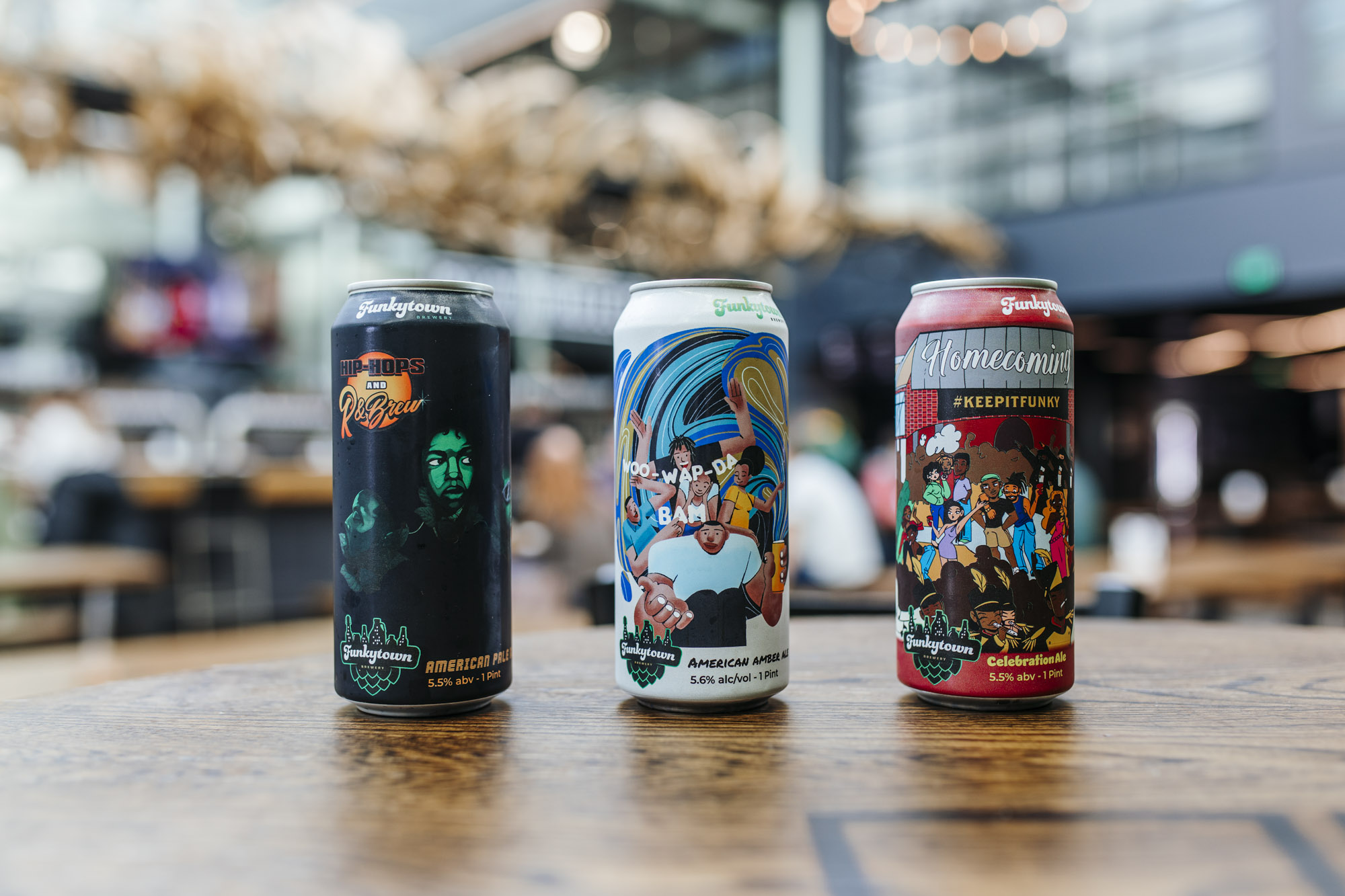
She references beers like Hip-Hops and R&Brew Pale Ale and Woo-Wap-Da-Bam American Amber Lager as great examples of the brewery’s approachable style. She says she hasn’t had a beer from them she didn’t like, and points out how the names and label art of Funkytown’s beers proudly announce the founders’ heritage and intentions.
“I love the fact that when you see their branding, you know they’re Black,” she says. “They want you to know they’re a Black-owned brewery.”
While that representation alone is significant in the modern craft beer scene, the founders’ strategy for getting more people of color into craft goes much further.
“We used a multi-pronged approach,” says Bloomfield. “We make sure there’s Black people and women on the label so that they know they’re included in the environment. We use cultural references and hip-hop references or just things that come from the community that are relatable and haven’t been seen in commerce before.”
The intentionality goes beyond just names and label designs though to how the brewery plans and conducts its events. Funkytown recently partnered with Whole Foods and Jewel-Osco (a Chicago-area grocery chain) stores in Black communities where there aren’t craft bottle shops to lead tastings and introduce themselves.
“We pull up for them, tell them a story, explain why our community deserves better beer than just malt liquor,” Bloomfield explains. When they host events at Pilot Project, they make sure they serve as an invitation to the BIPOC community with simple choices like the music being played or the specific dishes being served at an event.
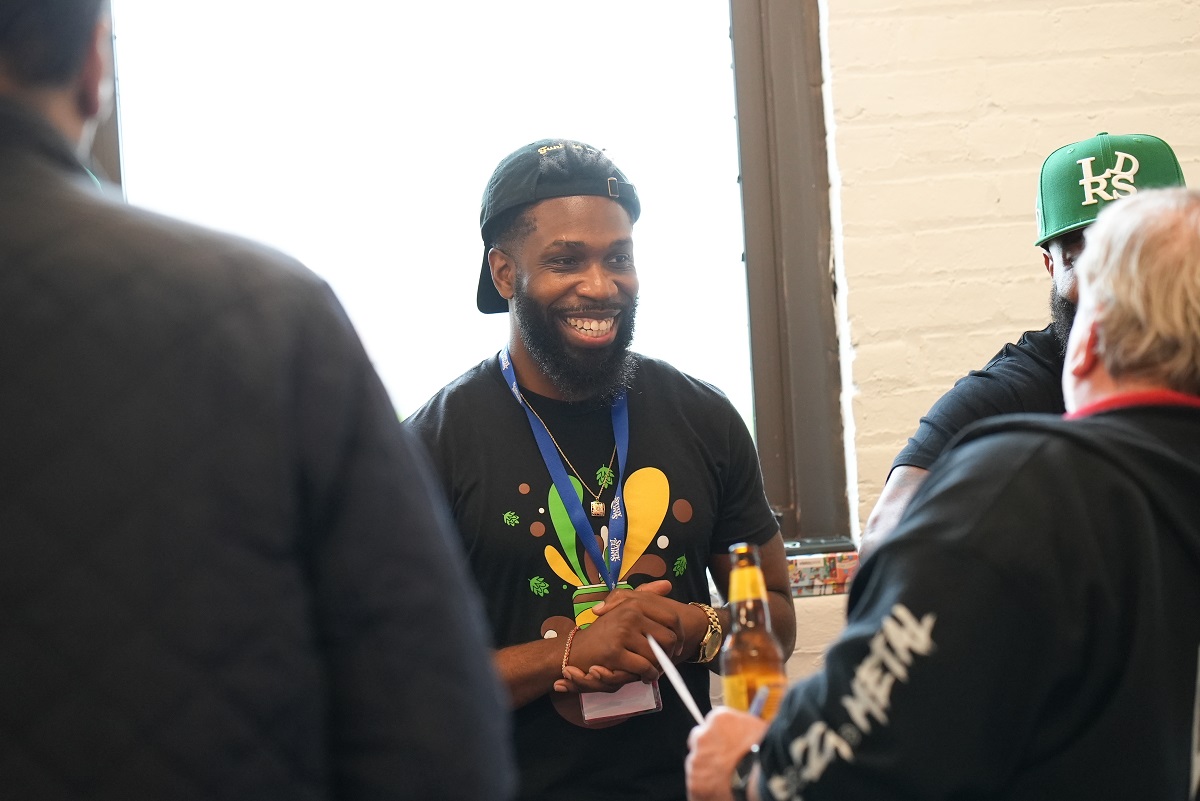
“Overall it’s just a party, but it’s to make the beer world a little bit more of an easy introduction for Black people. We try to make sure that Black people feel heard, known and included in this space.”
Crafting Dreams
While hardwork and talent were leading to early success for Funkytown, they got a major boost toward their goals from a much larger, first generation craft brewery in summer 2023. They applied to Boston Beer’s Brewing the American Dream program, and soon found out they were among the finalists. In June, they got the call that they’d won, giving them access to mentoring, capital, and visibility that would rapidly accelerate their plans.
Boston Beer (brewers of the Sam Adams line of beers, among other popular beverage brands) launched the Brewing the American Dream program in 2008 to give back to the craft beer community and provide to small breweries the assistance founder Jim Koch wished he had had when he was getting started in the 1980s. In 2012, the current format for the program began, in which a small brewery is selected each year to receive direct assistance from the venerated Massachusetts company.
“Jim looked back to when he started Samuel Adams and the two things he didn’t have access to back then: capital and coaching,” explains Jennifer Glanville Love, Director of Partnerships & Collaborations for Boston Beer. Glanville Love has been with Boston Beer for over two decades and worked for much of that time as a brewer, including as the brewing coach for Brewing the American Dream before taking over as leader of the program in 2019. Over 50% of the breweries helped through the program have been women-owned, and 76% have been BIPOC-owned. She says the biggest need these businesses have had in common is networking—they haven’t had access to resources and haven’t known who to ask for help or had the right opportunities to do so.
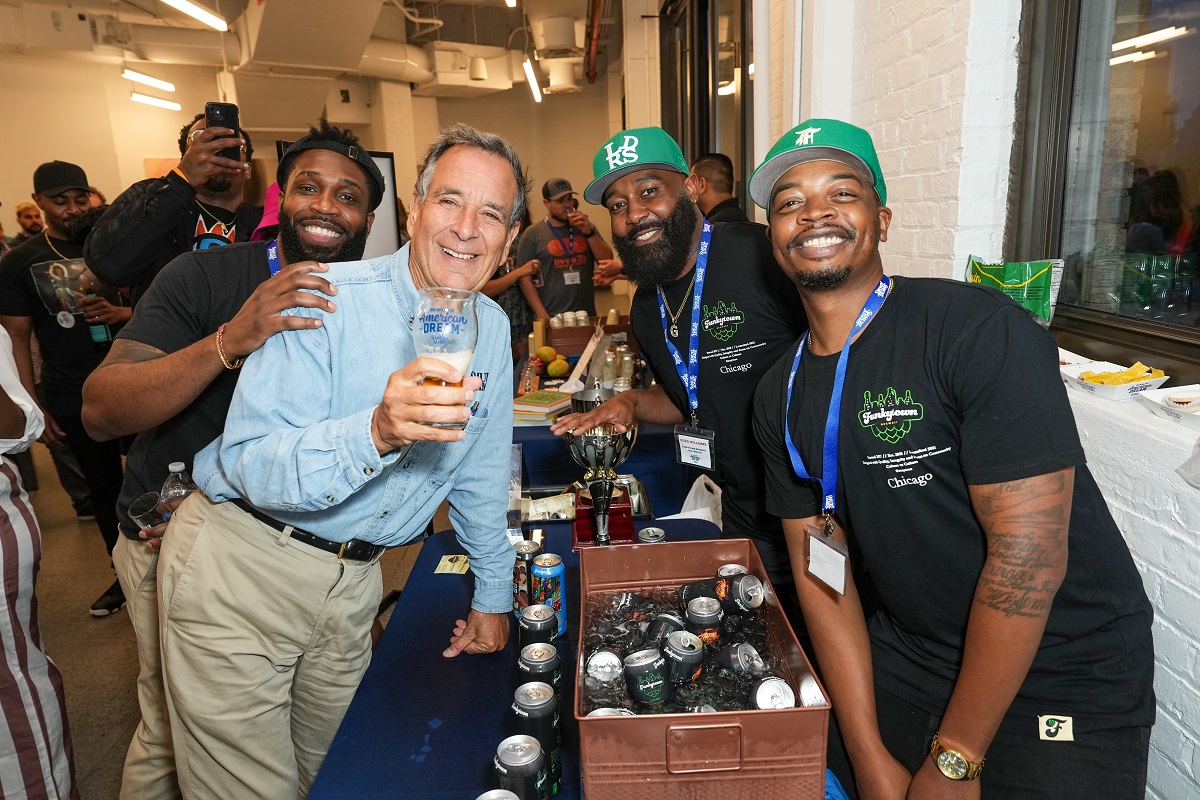
“We feel like that’s where we can step in and provide opportunities,” she says, explaining that this responsibility has been front-of-mind for Koch and Dogfish Head founder Sam Calagione (Dogfish Head merged with Boston Beer in 2019). “Sam and Jim have been in the industry so long and recognize we can’t just sit around and talk about this. We have to do things.”
In June, the guys from Funkytown were flown to New York City for the Crafting Dreams Beer Bash, a party at which the six brewery finalists had a chance to pour their beer for the public and meet new fans. It was the perfect venue for the three lifelong friends to do what they do best.
“We felt like it played into one of our strong suits,” says Bloomfield. “So what we do when it comes to setting up a table and pouring at a festival or an event, is we step beyond the table. We don’t just sit behind the table and pour, we step out and engage. We might compliment you on your shoes, learn about your education, learn about your history and how you got into beer. The beer is just that fun part, and we’re having that impactful dialogue.”
Their engaging personalities and excellent beer paid off. Attendees to the Beer Bash got to vote for their favorite brewery, and Funkytown won the popular vote, which is taken into account when Boston Beer selects the eventual annual winner.
“They were so energetic, so engaged,” recalls Glanville Love. “They really had the crowd going.”
She says what her team saw at the Beer Bash, combined with the quality of Funkytown’s beer and the work they were doing in the Chicago community (especially outside the walls of their brewery), made them the obvious choice to win this year’s Brewing the American Dream. When the founders were told they’d won, the morale boost was worth almost as much as the tangible help they would receive.
“It meant the world, that validation,” says Day.
He explains that the opportunity to learn from one of the best and biggest breweries in the industry is invaluable, and that process has already begun. Boston Beer provides direct coaching and consultation on every aspect of the winning brewery’s operations, from brewing to business planning to marketing. The Funkytown founders know they can pick up the phone at any time and get advice from Boston. The two will also brew a collaboration beer, which together with the visibility of winning in the first place provides a lot of marketing exposure.
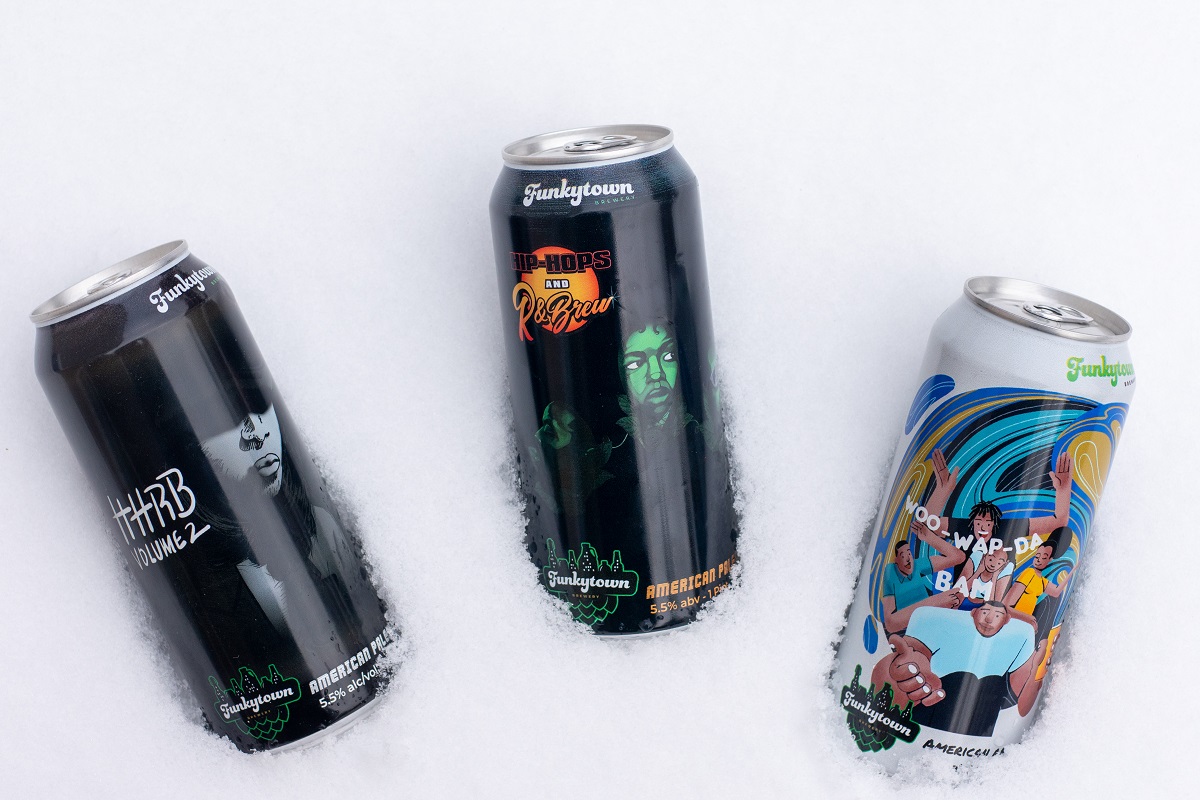
One of the most valuable benefits of winning is access to capital through Boston Beer’s relationship with Accion Opportunity Fund, which provides financial and business consulting along with making loans available. Glanville Love shares the example of a previous winner who recently needed to get new equipment, and Boston Beer connected them directly to Accion.
“What’s really great about them is they don’t just throw money at the loan,” she says. “They really do consulting more collaboratively to say, Do you have all the right estimates that you need? Is everything included in that?”
As part of that project, Boston Beer had their engineering team work with the brewery on the equipment install and helped review their plans.
“We can continue to come in on that coaching side to make sure that they’re getting the value,” she explains. “Do they need some different suppliers? Is there an introduction we can make with that? So some of that is a lot of cost savings for them—they don’t have to hire an electrical engineering consultant, because we can provide that for them.”
Doing What They Do Best
With the help Boston Beer is providing, the brewery is planning to open its own taproom with its own brewing system soon. For now though, they’re is still brewing at Pilot Project, who the trio are quick to point out have been impactful in their growth as well. Williams says Pilot does far more than just contract brew; they have sales, PR, and marketing teams, provide consultation, and have helped Funkytown get where they are.
Once Funkytown has its own brewery, they’ll use it for seasonals, special releases, and other rotating brands, but the plan is to continue to brew core beers at Pilot. The incubator will be able to handle their increased volume as they grow, allowing them to focus on dialing in the taproom system and work on new beers. Day is excited to brew on his own brewhouse.
“That’s something I’ve been waiting to do for a while, ever since we started homebrewing,” he says. “That means the next elevation level. It takes me from almost like a JUCO to the pro leagues.”
In the meantime, he’s putting in the work to be ready for the challenge. He recently won a scholarship from the Michael J. Jackson Foundation for Brewing & Distilling to attend the Siebel Institute, one of the most esteemed brewing schools in the world.
Having a home base all their own will open a world of new opportunities for Bloomfield, Day, and Williams to continue meeting their communities and getting them into craft beer, but they know it’s not as easy as “if you build it, they will come.”
“Even before brewing, we were beer drinkers that picked brands based on shelf appearance, because in the brewery spaces, we’d be the only Black people there no matter where we went,” says Bloomfield. “We have to create that diverse space where people are able to come experience the brewery and then branch out on their own to try other beer brands. To create that culture in the taproom is the next big step.”
The goal is to open a Chicago taproom by late 2024, but the trio is being realistic and smart about each step rather than “getting out over our skis,” as Bloomfield puts it. Despite the exciting resources that are now available to them, they know growth still has to be organic and rooted. With help from their mentors in the industry and support from their communities, the Funkytown Brewery founders are doing what they do best, and they’re doing it together.
Photos from Crafting Dreams event provided by Boston Beer.


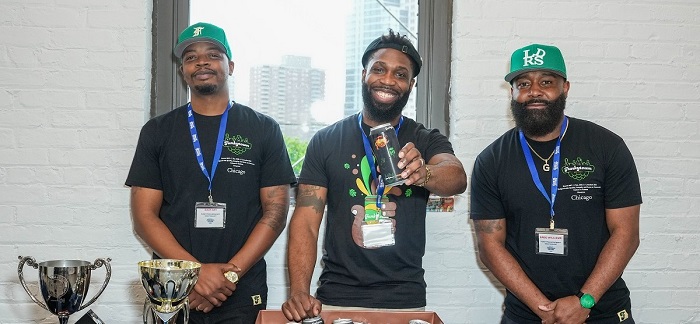

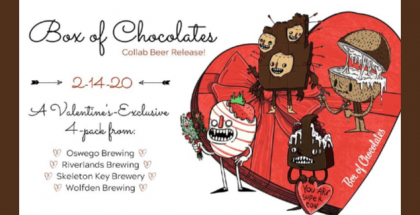
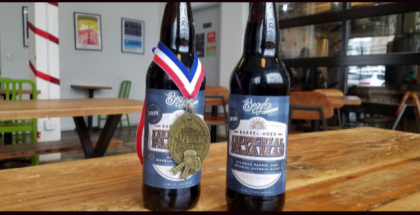
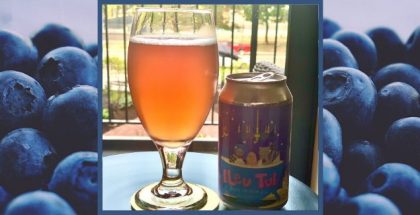
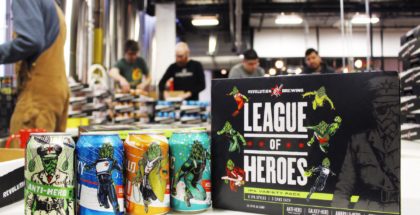
Submit a Comment